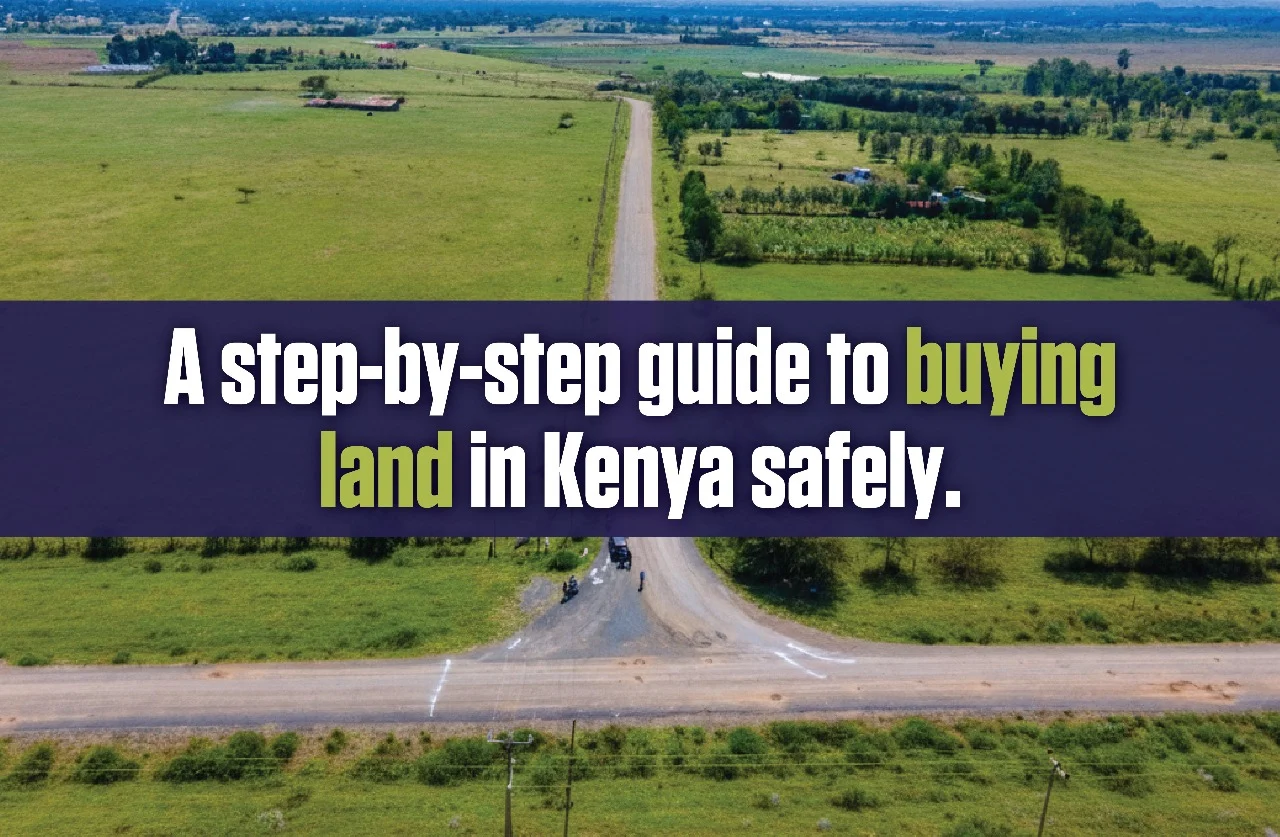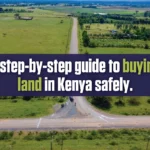You’ve just completed your to-do list in the office or finished serving your customers in your business, and yeah, it’s family time now. You drive home to catch-up with family, and oh, Junior had asked Mummy to bring home some chocolate and ice cream or Princess had asked Daddy to bring home some pizza and yogurt. You enter the next supermarket and grab the items for your lovely kids, and as you walk around the shelves, you remember that you needed to add into your house stock, some fresh vegetables, milk and a bread. You walk to the cashier, and give them a note, pick your shopping and drive home. Wait, did you pick your receipt?
Imagine if buying land was as quick and seamless as buying Fast-Moving Consumer Goods you buy every day. You don’t need to know who owns the store, no confirming if the vegetables were grown in the right soils, no knowing who served you over the counter, etc. Unlike milk and Pizza or vegetables, land is not something you will walk anywhere, pick up, pay and walk away.
Land is a high value investment that changes the course of your financial future or costs you everything if you make the wrong move. Here, a lot is at stake. From selection of location, the seller, checking ownership records, etc. You cannot afford to forget to collect the receipts of the payments! Land buying is not an impulsive act, it is a process that demands diligence, patience and a lot of caution.
Over the years, many Kenyans have learnt painfully that land is not something you walk in a store and buy. Stories of countless people who have worked very hard in Kenya and abroad are all over, of how they lost their sweat to frauds and scammers in the real estate land industry. From buying land sold to multiple people, land sitting on road reserves or riparian areas, land that never existed, and even being sold land by brokers and sellers who do not necessarily own the land. One common trend in all these cases is always lack of proper due diligence.
Imagine with simple steps such as verifying the title deed, confirming ownership, visiting the land, etc. will make your land ownership journey in Kenya seamless, with no one shattering your dreams. As a potential land owner, always remember to ask the following questions before buying land from any company or individual. Is the land registered under the seller’s name? Does the seller have the title deed of the land? Does the land have any encumbrance? Does the company have permanent offices?
Here is a simplified step-by-step guide to purchasing land in Kenya.
- Identify a good location based on your need and budget.
Always define correctly the reasons behind your purchase of a piece of land. Are you looking to build a home? Are you buying land for speculation? Are you looking to do farming or commercial development? Location is everything in real estate. Always determine your budget, including the hidden costs, as this will determine the location you can afford to acquire a piece of land. Whether available now or in the future, road accessibility, utilities such as water, electricity, internet, security of the area, and the growth potential, are key factors to consider. Always remember a good location today is a goldmine tomorrow.
- Conduct a site visit.
Visit the land physical or virtually through your representative. Check the actual size and boundaries of the land, ask about possible existing disputes, check the surrounding neighborhood if it is developed or developing, bearing in mind that in Africa, development precedes infrastructure. Check the terrain and the type of soil to see if it fits your need as a buyer.
- Conduct a search of the title deed at the Lands Registry.
Obtain a copy of the title deed from the seller and conduct a search at the Land Ministry. This can be done by physically visiting the offices or online through the Ardhisasa portal depending with the land location. This process will help you to confirm:
- The registered owner of the land.
- The land exact size.
- Any encumbrances such as caveats, charges or dispute.
This is a critical stage that will protect you from buying Land from frauds and scammers.
- Request for documentation.
Begin the legal process of acquiring land which will include document verification of the seller, reviewing a letter of offer and draft sale agreement, negotiate payment terms with the seller making sure the same is captured in the documentation. Always remember to use a qualified lawyer to guide you in this stage. This comes at a cost, but is better than losing your investment to fraudulent land sellers.
- Pay a deposit and sign the agreement.
Proceed to make the payments of a deposit to the seller according to the agreed terms. In Kenya, different land selling companies have different terms of payment. Ensure to understand the terms before commitment. For example, if you are looking for plots for sale in Juja and choose a company like Fusion Estates as the seller, you are required to pay a deposit of 30% and the balance in an agreed flexible payment plan. Always remember to collect your receipts after payments and the keep them safe. Avoid cash deals and always make payments through banks or other means which have evidence of proof of payment. Upon execution of the sale agreement, proceed to make the balance of the purchase price as agreed.
- Consent and valuation.
In Kenya, especially for agricultural land, transactions require consent from the Land Control Board. An application for valuation is also done to a government valuer, to determine the value of the land, which determines the amount of stamp duty to be paid. Usually, the stamp duty is between 2-4% depending with the location of the land.
- Registration of title in your name
This is the final confirmation of ownership. The seller, through their counsel prepares the transfer documents and upon execution by both parties are submitted to the Land Registry for registration. The land registry issues a new title deed in your name. This takes a few weeks or months depending with the county where the land is registered. Once you get the title deed in your name, always remember to cross check the details to ensure accuracy.
- Conduct a final search
Conduct a search of the new title deed, and the results will show that you are the current owner of the land. Congratulations for securing a home and an investment. You are now a land owner.
- Secure your land and documents.
After all is said and done, keep your documents, including payment receipts, title deed, and sale agreement safely. Remember to fence your new land to prevent trespass and encroachment. Develop your land, even if it is a small structure to assert ownership.
The land business in Kenya has different players, some genuine and some ingenuine. Always carry out due diligence, engage a reputable and solid company for all your land transactions, and avoid shortcuts. Remember, investing in land today is not just for you, but also, for the future generation. Once in a while, show those payment receipts, sale agreement and the title deed, to Junior and Princess, reminding them that with the right process and proper due diligence, you secured them a future.
Is there a better way to pass knowledge to the future generations?
Charles Ndiritu,
Team Leader, Fusion Estates Management





